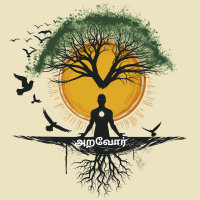To learn effectively, first grasp concepts fully and seek clarification for any uncertainties. For instance, in mathematics, understanding the fundamentals of algebra before moving on to complex equations ensures a solid foundation. Once knowledge is acquired, it’s crucial to apply it practically. In programming, after learning a new coding language, practicing by building projects reinforces understanding. Ultimately, true mastery comes from consistently applying learned knowledge in relevant contexts, ensuring competence and growth.
Learn appropriately, clarify doubts, and after acquiring knowledge, apply it by conducting oneself in accordance with what has been learned. #391
To implement the principle in daily life, start by dedicating focused time to study, actively engaging with material, and asking questions to clarify doubts, whether it’s for school subjects or personal interests. For example, in learning a new hobby like playing an instrument, dedicate regular practice sessions and seek guidance from teachers or online resources to understand techniques thoroughly. Then, apply the learned knowledge by actively participating in musical activities or performances. Consistently reflecting on progress and adjusting efforts based on feedback ensures continual growth and skill development in various aspects of life.
